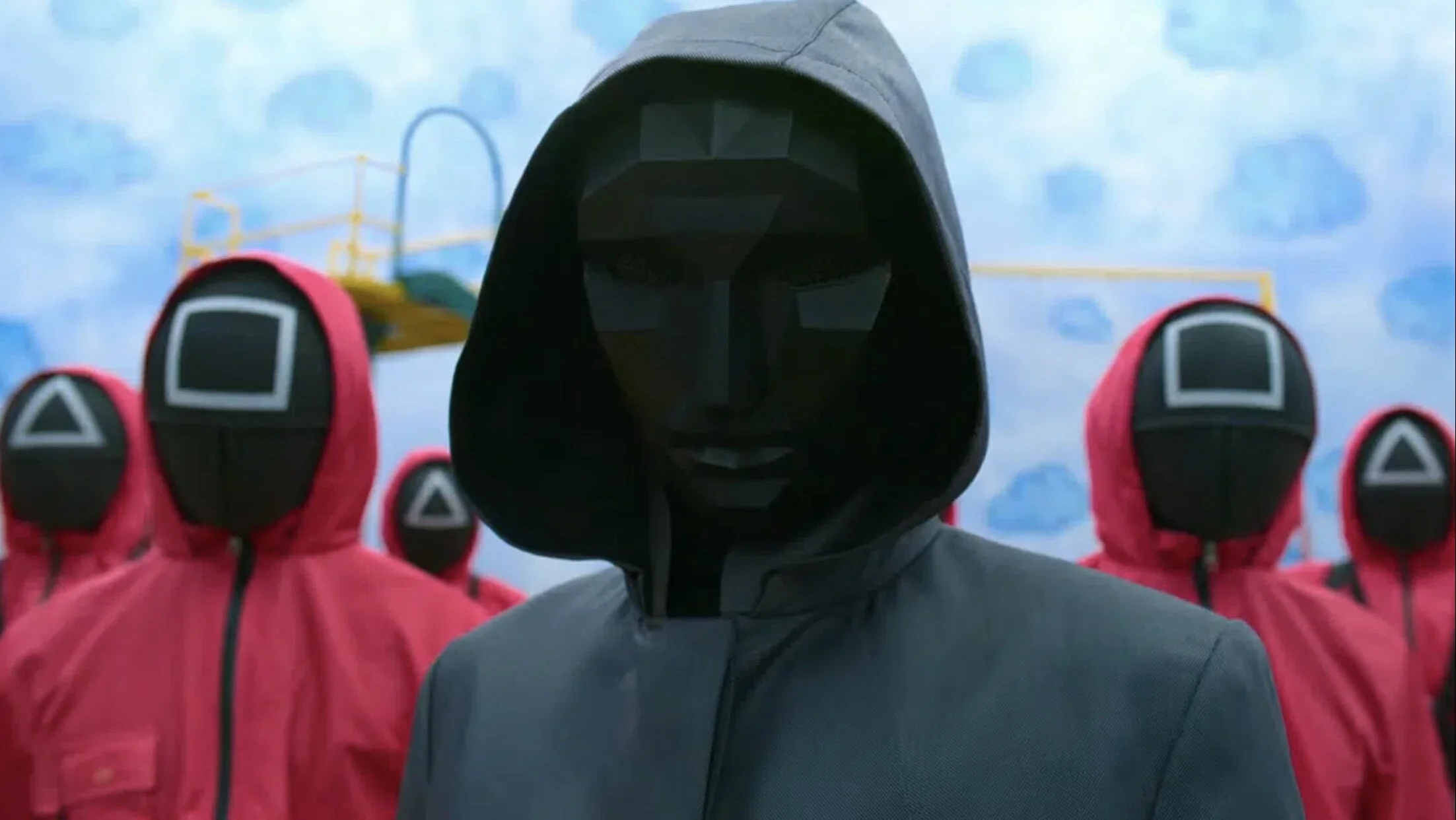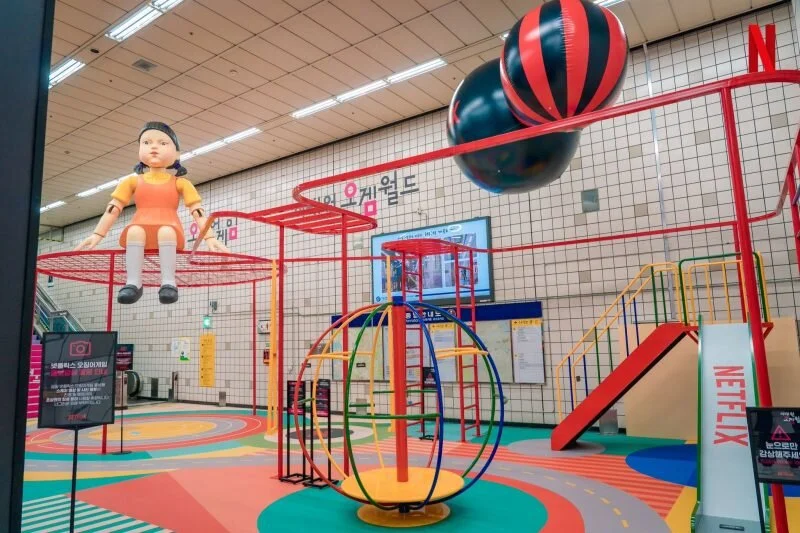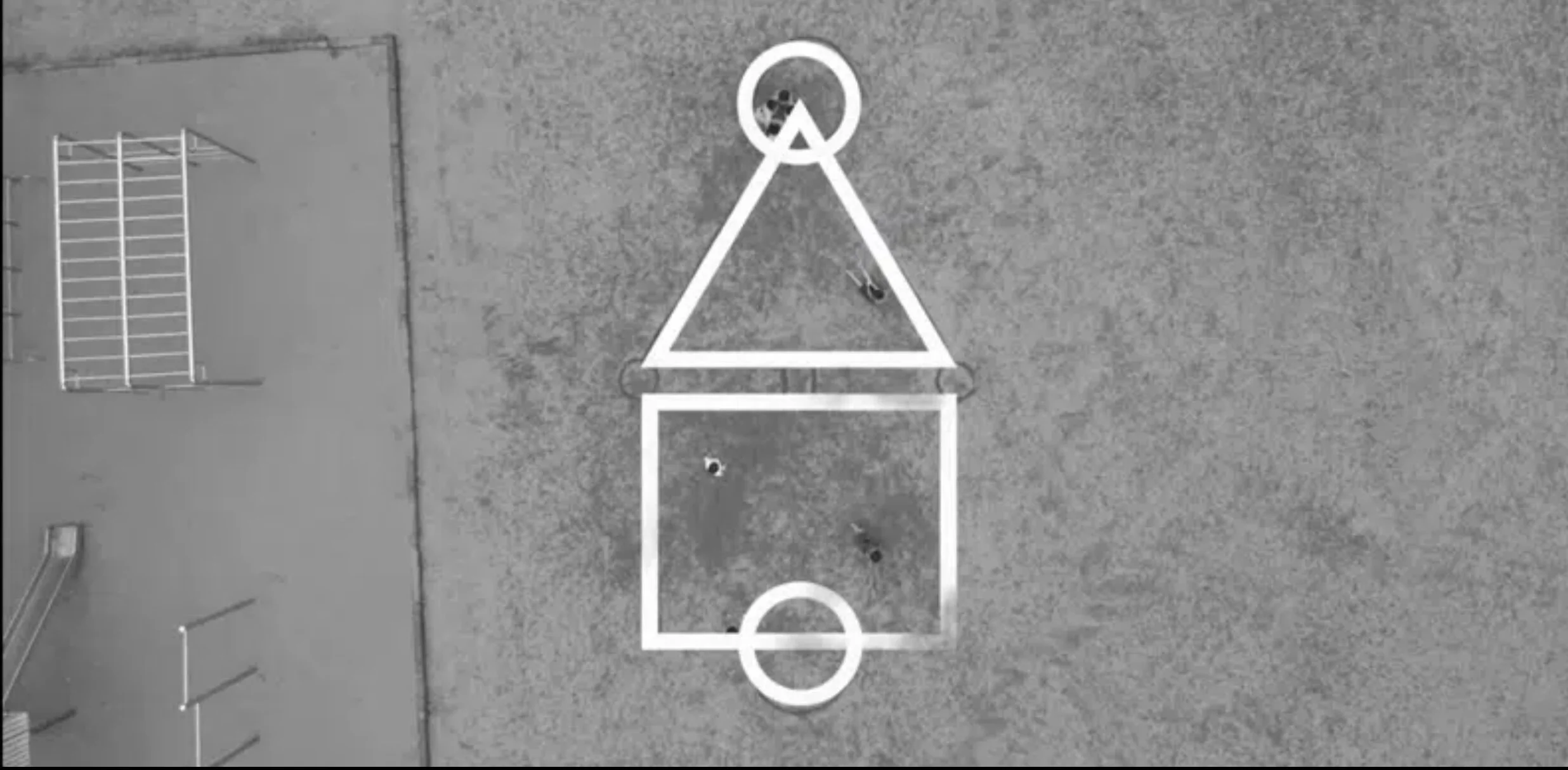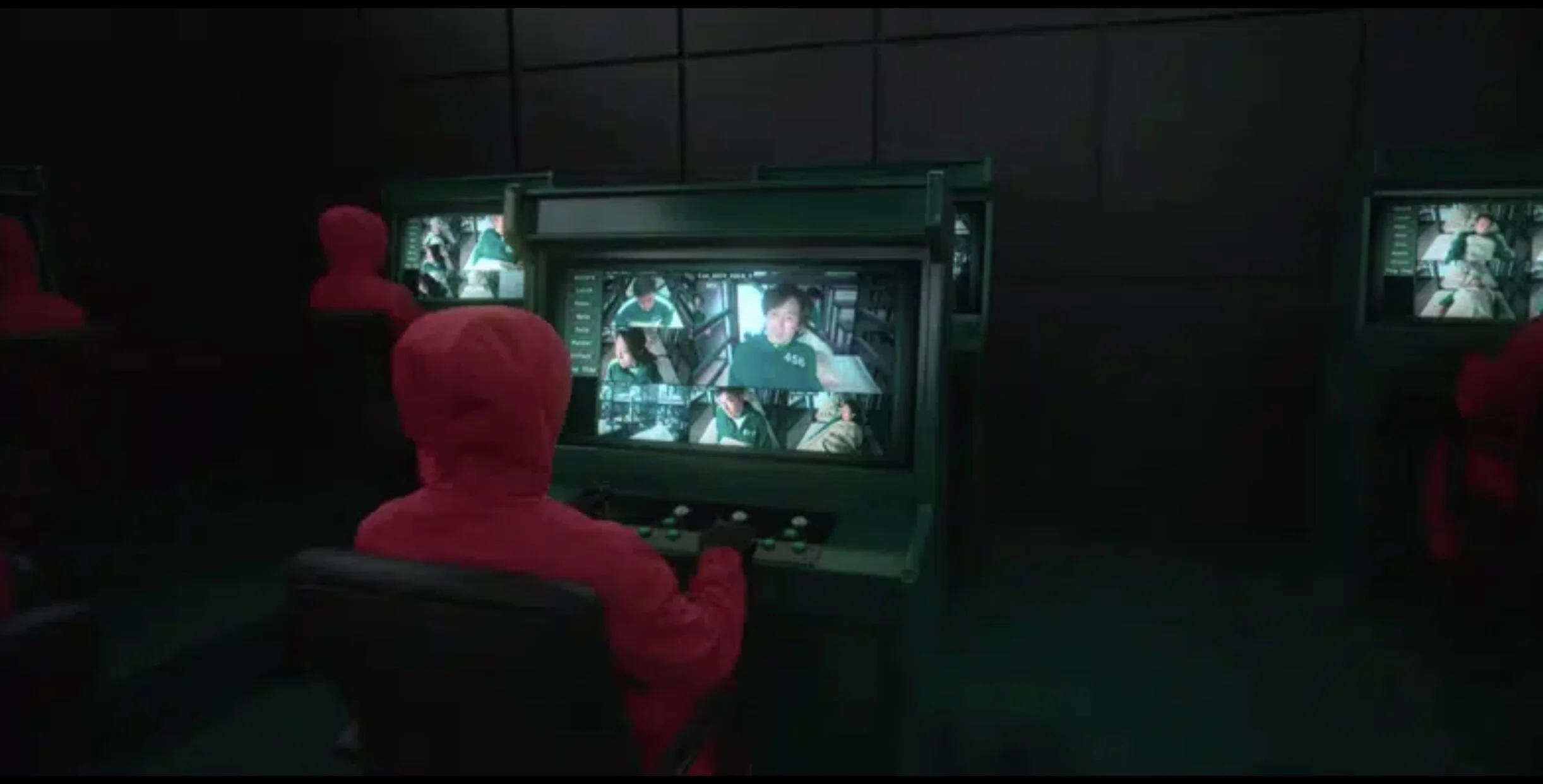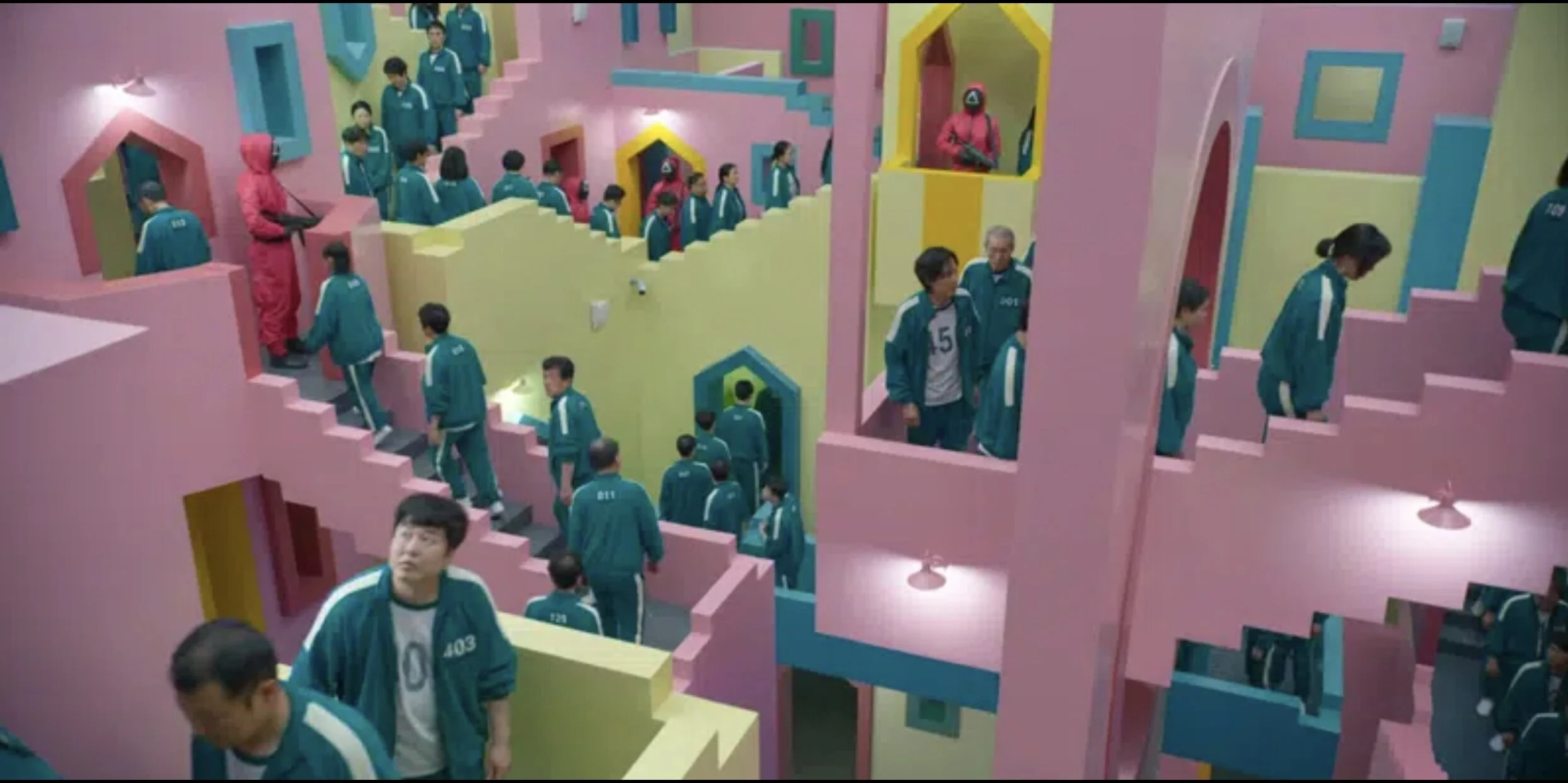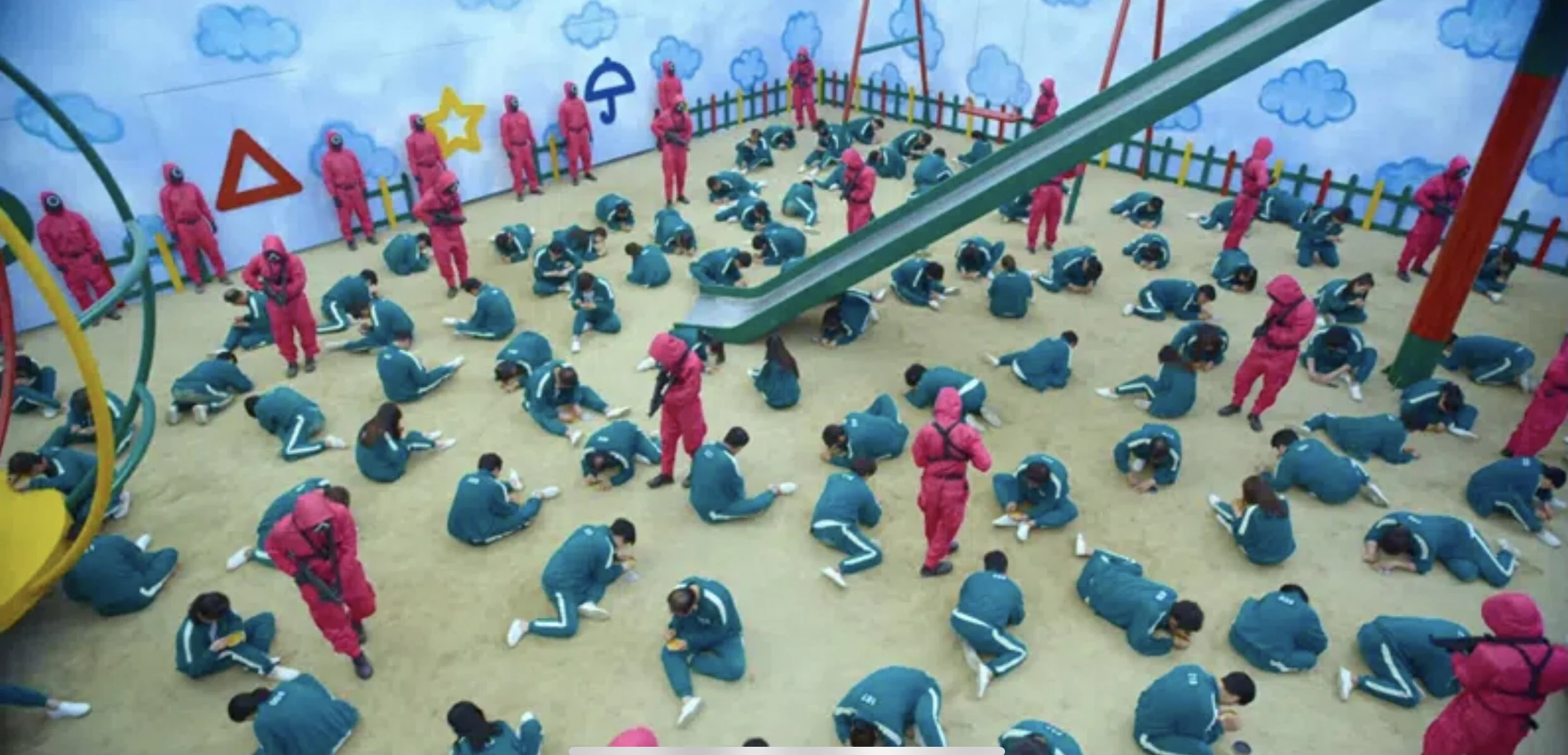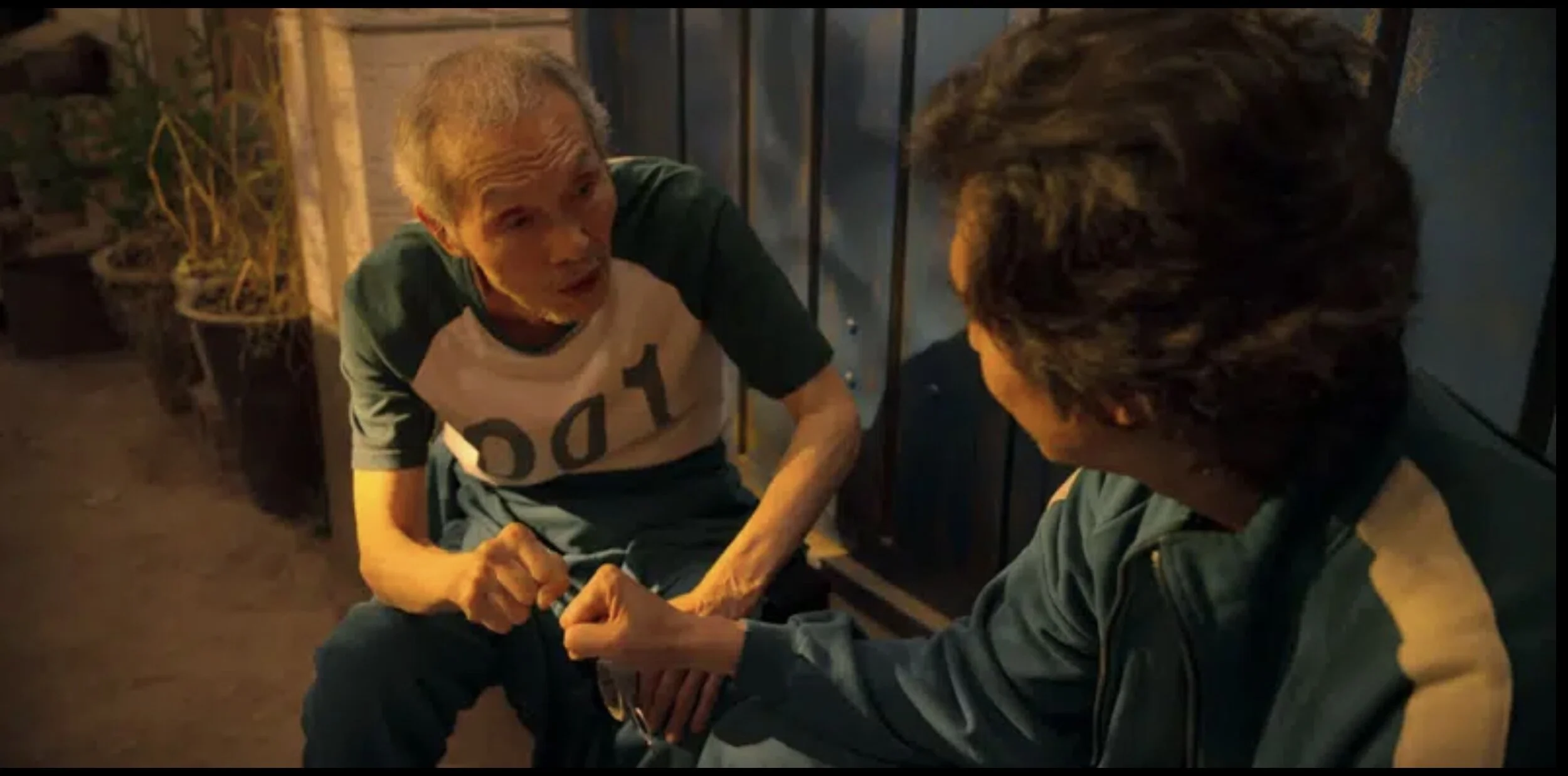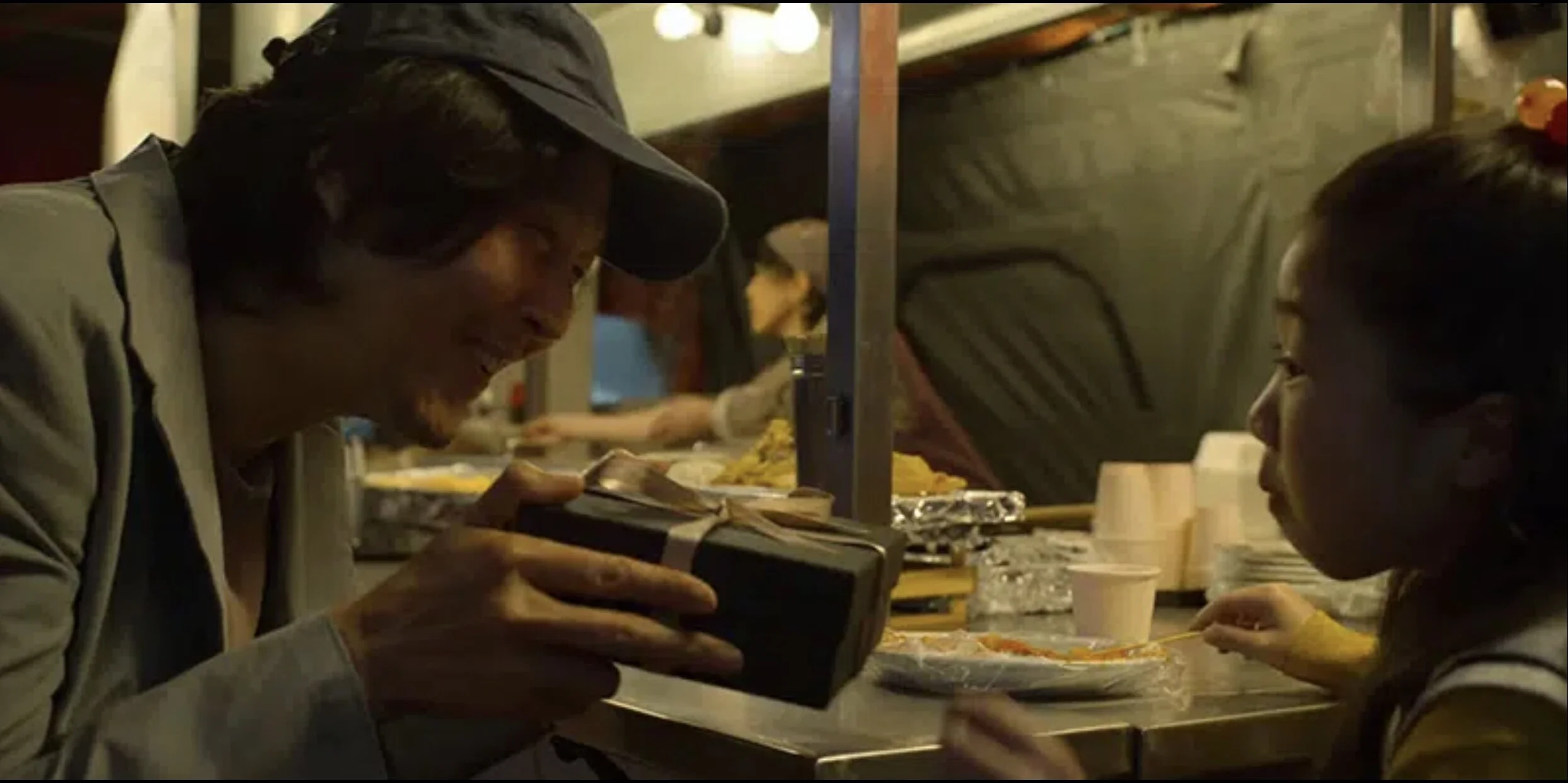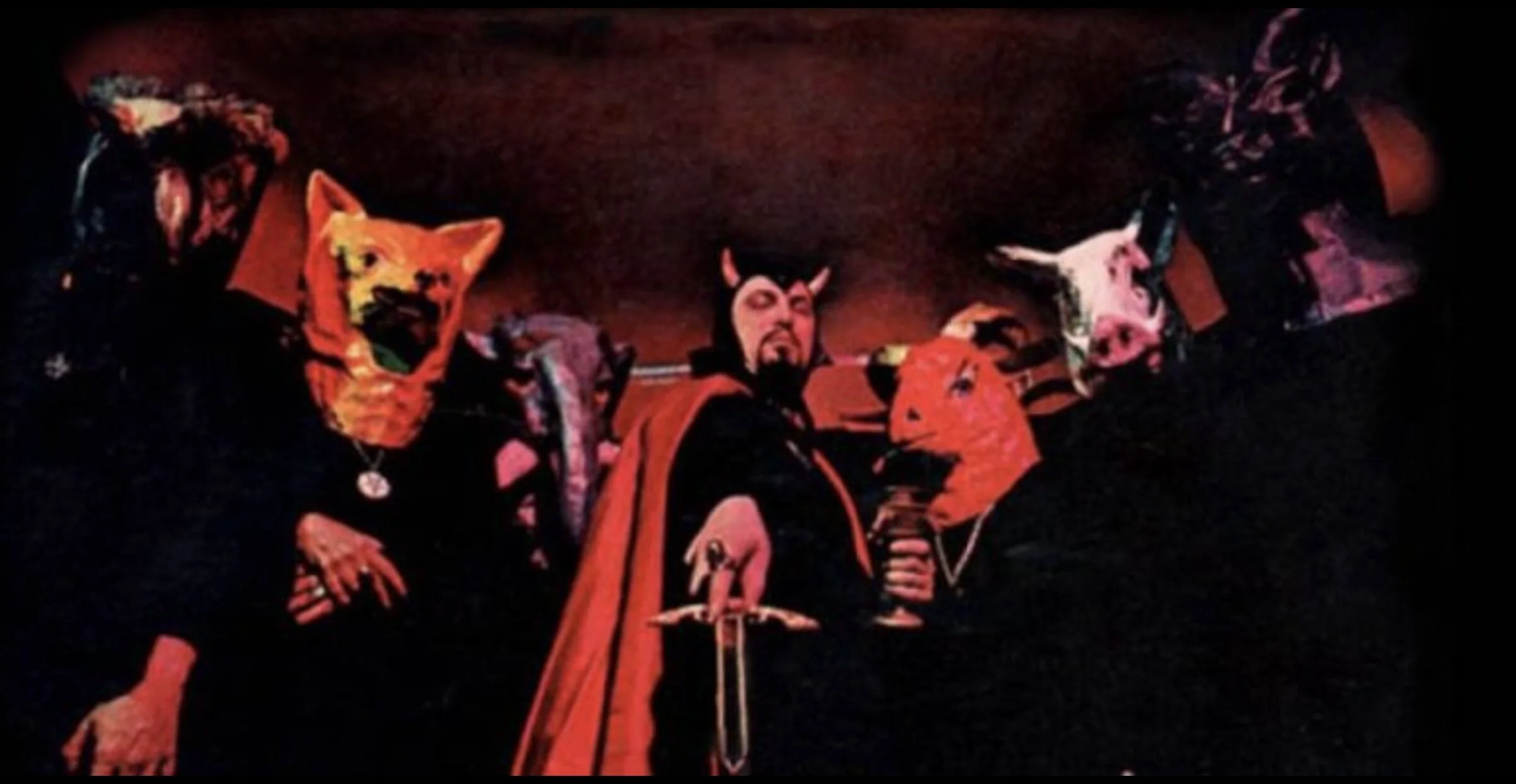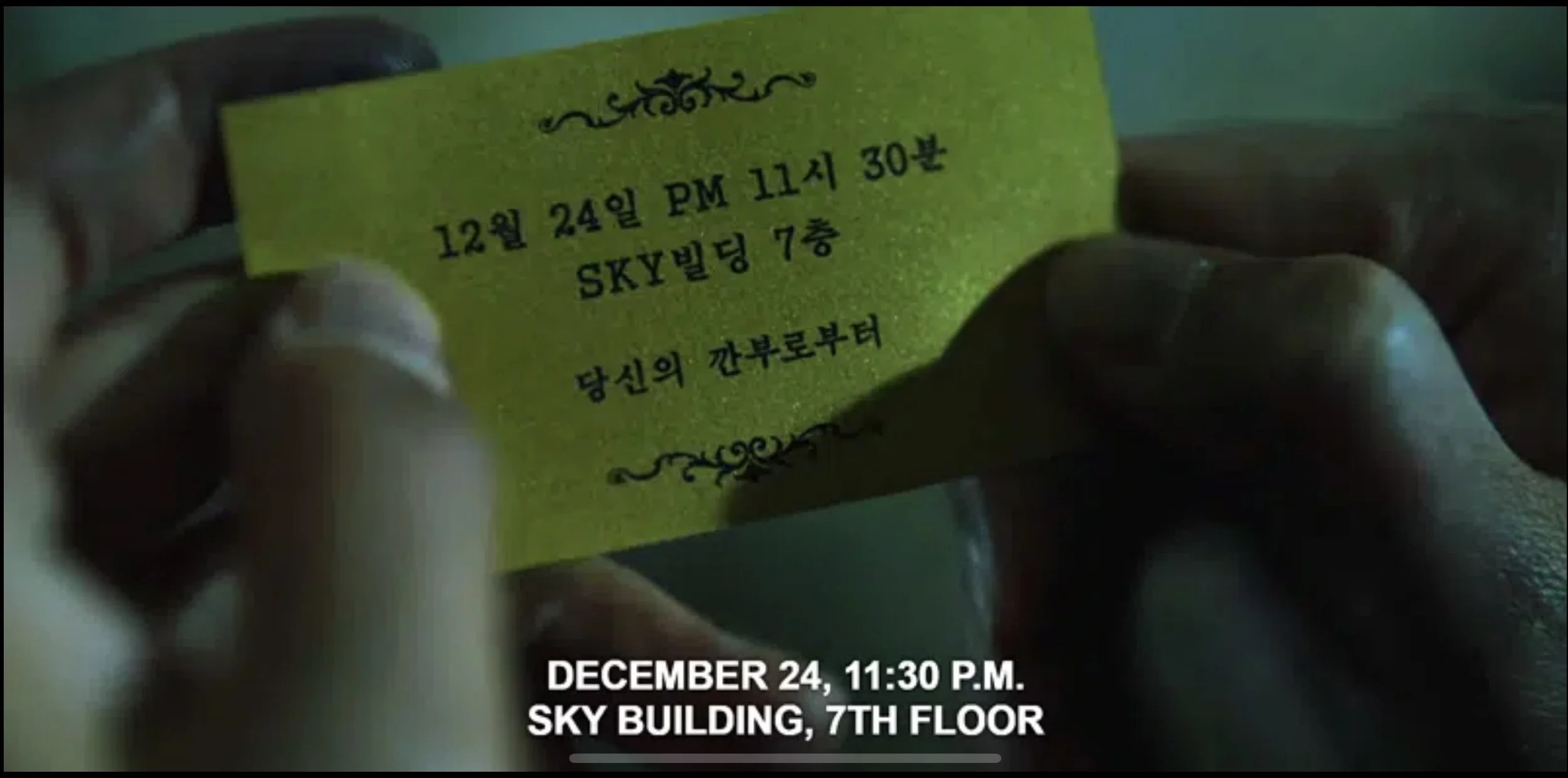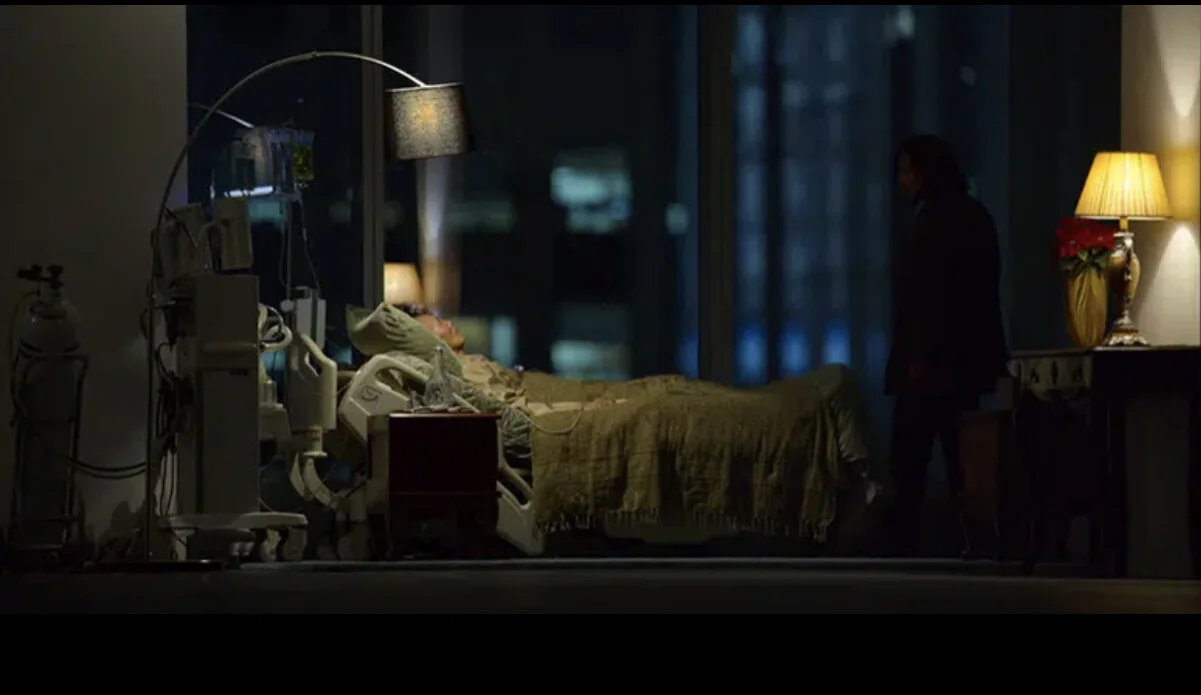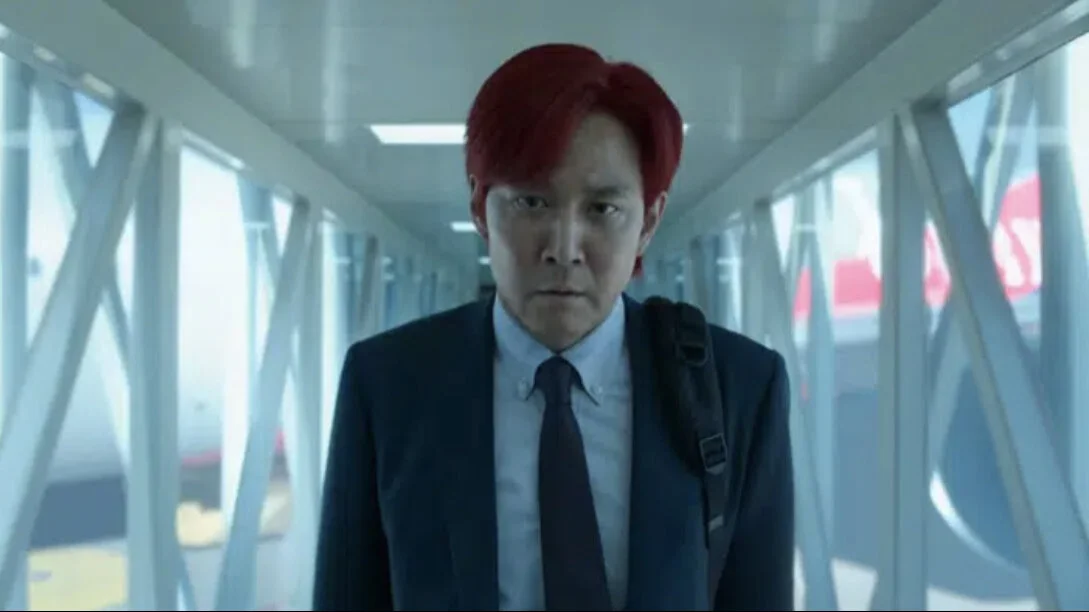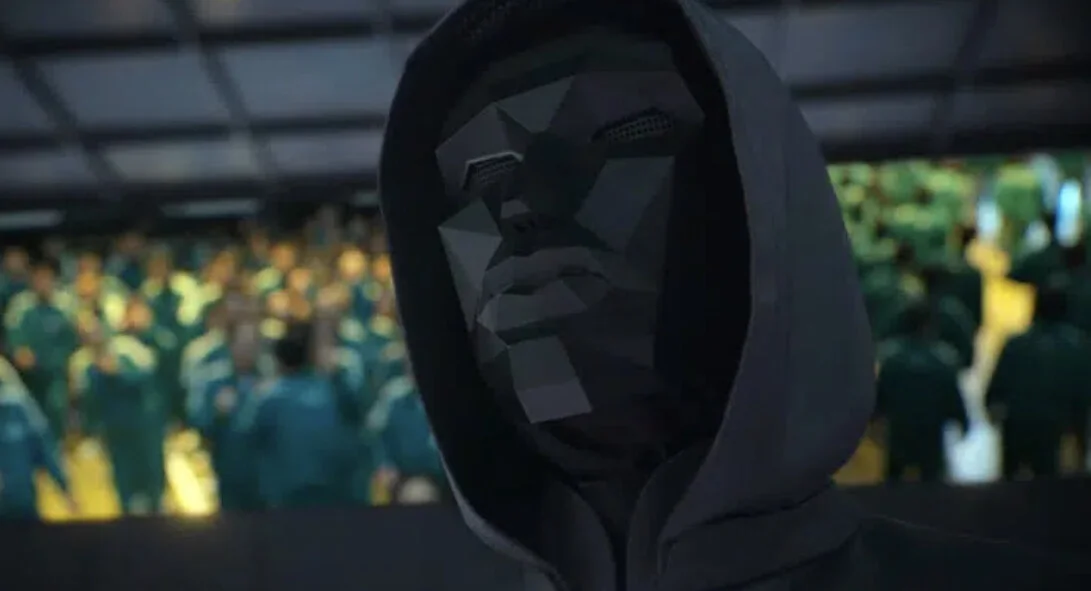The Occult Programming Of Netflix's “Squid Game”
(Chaz Anon) Netflix new series Squid Game is enjoying a lot of buzz right now on social media. The symbolic theme of this show seem to resonate strongly with audiences, pushing this show to the top of Netflix ranking algorithm.
One factor for it’s popularity might be that the main narrative of the show (elite corruption) is playing out in our current social reality. Audiences might consciously see that this narrative is relavent but the symbolic element aims towards the unconscious. Squid Game is metaphorical, representational of the class struggle between the ‘proletariat’ workers and the “Bourgeoisie” elite, who hide behind literal and figurative masks of deception.
Squid Game seems to be specifically designed to desensitize viewer, predictive programming a future desired by those in power, waiting around the corner for us, after the technocrats completely implement their “Great Reset” agenda.
Viewers witness many brutal deaths in Squid Game, with many contestants being shot in the face, while others fall from buildings. Many grotesque forms of death are represented here. By the end of the series of games, all the characters becomes so desensitized by the violence that they don’t even notice it anymore. And TV audiences likely won’t either. And that’s the intended effect.
When I first saw the ads for this show I was intrigued by the characters and symbols, which had an aesthetic of children’s TV. A giant doll is a featured aspect of the marketing as well as colorful sets and videogame symbols on the blackout faces of the characters. But, Squid Game is certainly not for children and features extreme levels of gore and violence. Is this show designed to lure children to the series to then traumatize them?
The main narrative of Squid Game is based on the classic Science Fiction trope of the powerful elite using the peasants to play deadly games for their entertainment. We have seen this story before with movies like Running Man and Hunger Games.
Some people claim these movies are based on true stories. People have reported in the past that royals like sending children off into the forest to be hunted like wild animals. Squid Game took this concept, mixed in some popular technocratic dystopian elements, and finished it off with a dab of occult symbolism.
The Narrative
The basic premise involves characters that are heavily indebted with no future, who get recruited to play a “game” where the winner gets out of their dead end future. Unfortunately, for the losers death is the only way out. These “games” are orchestrated by a group of rich elites who enjoy humiliating people and forcing them to become immoral animals in order to survive.
In the intro scene of the first episode the camera shows a symbol on the playground of a school yard that explains the theme of the show. This outline of the game is also the main logo of the series, which illustrates the core philosophy of Squid Game. The rectangle represents the masses. The circle at the bottom of it represents those who are poor and heavily in debt. The triangle above the rectangle represents the elite ruling over the masses. The upper circle represents the all-powerful occult elite that controls the world.
The narrator explains that the children who play Squid Game must make their way to the upper circle to win. When that happens, the narrator says:
“And, in that moment, I felt as if I owned the entire world.”
From Vigilant Citizen
At the beginning of the series, the main protagonist, named Gi-hun, is clearly in the lower circle of society. He steals money from his mother and runs away from the shady people to whom he owes money.
Then, Gi-hun gets his first taste of elite sickness. While waiting for the subway, Gi-hun is approached by a mysterious salesman who happens to know everything about him. He proposes Gi-hun to play a game where he can win money.
For a moment, Gi-hun did not care about the money, he got caught up in the sadistic thrills of the elite. This scene foreshadows what will happen to Gi-hun in the end. After this humiliating game, the salesman proposes Gi-hun to participate in another game where he can win much more money.
After accepting the offer, Gi-hun is picked up by a car and is gassed to sleep. He wakes up in a dystopian nightmare.
The games take place in a massive compound hidden on a remote island. In many ways, this place resembles an MKULTRA black site where sick experiments take place.
In many ways, the dystopian system that takes place inside these walls is a microcosm of our modern society.
The players of the game are stripped of all possessions, dignity and are infantilized to a ridiculous degree. These players represent how the elite perceives the masses.
Games take place in colorful playgrounds which we naturally associate with the fun and innocence of childhood. However, every “playground” becomes the site of brutal mass murders carried by faceless workers. They hate the wholesomeness of childhood. They want sad, broken individuals.
The players end up voting for stopping the game and everybody goes back home. However, nearly everyone realizes that they have lots of problems that can only be fixed with money. Conveniently enough, the organizers of the game keep track of these players and invite them back. The result: Most of them go back to the game of their own free will. This concept is important to the occult elite as they believe it liberates them from karmic laws.
In short: The democratic process was an illusion. The elite rigged the system to obtain the result it wanted to see.
When they’re back in the game, the solidarity between the players quickly dissipates. In order to see the players turn on each other, the organizers purposely give them a single egg as a meal. Surely enough, the players start fighting for the precious eggs. This reflects a classic tactic of the ruling class: By making resources scarce, the masses stop focusing on the rulers and start fighting each other for scraps.
The next games are specifically designed to pit the players against each other. For instance, the marbles game requires players to form teams of two. Naturally, most players team up with the person they are closest to. One guy even matches up with his wife. Then they learn that the two players must play against each other … and the loser dies.
Gi-hun tricks this old confused man (who was his friend) to win the game. He had to stoop low to survive. More on the old man later.
The bodies are incinerated in industrial-size installations. Considering the fact that the elite is obsessed with global depopulation, each death is a “gift”.
In the first episode, Gi-hun gives his daughter a gift that looks like the creepy coffins. One of the many instances of foreshadowing in the series.
When she opens up the box, we realize that the gift is a gun-shaped lighter.
This scene foreshadows the numerous deaths by gunshot that are about to happen. Also, the gun lights fire which can refer to the bodies being incinerated. The fact that Gi-hun gives this gift to his daughter is in line with the overall agenda of exposing the youth to the elite’s sickness.
Elite Sickness
For the final three games, the organizers welcome VIPs – ultra-rich, elite people who came to watch the show in-person. Through symbolism, the series indicates who exactly these people are.
The VIPs walk around with animal masks on their faces. The occult elite has been doing this for centuries.
Left: One of the VIPs. Right: Helene de Rothschild at a 1972 occult elite ball.
This picture from the Church of Satan website shows a bunch of people wearing animal masks symbolizing the embrace of humans’ animalistic side.
Appropriately enough, these VIPs are obsessed with the two core elements of humans’ animalistic side: Lust and blood.
After five games, there are only three players left. They are the “elite” players. Consequently, they are given fancy clothes and are treated to a feast. No more boiled eggs for these three. The setting of this feast could not be more symbolic.
This is all blatant Masonic symbolism.
The scene conveys the occult and ritualistic nature of this game. In Freemasonry, the checkboard floor is the transformative surface where rituals take place.
The most powerful ritual of all: Blood sacrifice. And that’s exactly what the VIPs want to see happen.
As expected, one player slashes the throat of another player who dies. The blood sacrifice to the elite is complete.
If one fast forwards a whole lot of stabbing, we learn that Gi-hun ultimately wins the game. Therefore, he is sent back to the real world with the equivalent of $38 million in his bank account.
Does he finally chill out and live it up? Nope. He’s basically dead inside and he spends about a year mopping around. Then, Gi-hun receives a symbolic invitation.
In several spiritual currents including the Kabbalah, “7th heaven” (which is literally translated to “7th sky” in some languages) means “the highest heaven, where God and the most exalted angels dwell”.
In a major plot twist, we learn that the old man is actually super-rich. He’s also the “creator” of the game. When Gi-hun asks him why he created such a horrific system, he answers:
“If you have too much money, it doesn’t matter what you buy, eat or drink. It all gets boring. All of my clients eventually started saying the same things when we talked. Everybody felt that there was no joy in their lives anymore. And so, we decided to get toghether and started asking what could we all do to finally have some fun?”
Does this explain why the elite partakes in such extreme and depraved activities (i.e. Epstein Island)? In any case, simply watching the games wasn’t enough anymore for this old man anymore. He actually wanted to be a player in the game in order to feel alive.
When one rewatches the series, one realizes that this old man (aka player #001) had a great influence in the game (while also apparently being immune to getting killed). He was the equivalent of an elite plant amongst the masses. For instance, he had the final and deciding vote during the democratic process. Also, he stopped the night of murders by yelling and causing the workers to come out and stop the violence.
Gi-hun comes out of his meeting in the 7th sky a changed man. To reflect this profound change, he dyes his hair red (the color of sacrifice and transformation in occult circles). Then, finally decides to board a plane and go see his daughter.
However, at the last second, he turns back.
So, instead of seeing his daughter and finally being part of her life, Gi-hun wants to go back to the madness. That’s crazy. The real reason for him wanting to back: He is now infected with the sickness of the elite (represented by his red hair). He feels dead inside … unless he partakes in the extreme thrills of the game.
The ultimate proof of this is the fact:
The Power Rangers guy who oversees the Squid Game is a past winner. He also got infected and needed to go back.
In short, the ending is not happy. Everyone loses the game. Except for the elite.
In Conclusion
Squid Game became the biggest series in Netflix history for several reasons. Beyond its shocking violence and gripping story, the series explores several themes such as religion, human nature, and the pitfalls of economic inequalities. While several news sources interpreted Squid Game as a “critique of capitalism”, they seem to overlook the most obvious and glaring theme: Society being ruled by a sick occult elite that takes pleasure in dividing, controlling, dehumanizing, infantilizing, and outright abusing the masses. And that story doesn’t end with this game being taken down … it ends with the winner going back to it.
In this sense, we witness a form of Stockholm Syndrome where people who get abused end up identifying with their abusers. And that’s kind of the goal of the series: The viewers end up enjoying watching this sick form of entertainment the same way the VIPs enjoy watching people getting killed. Then, they feel dead inside.



